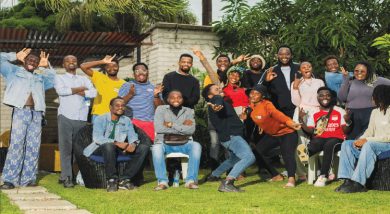Independence Day celebrations alive in William Village
At dawn of July 6, they are in the graveyard clearing and sweeping thorns and bushes to keep the silent resting world unsullied.
Communities of William Village in Traditional Authority (T/A) Machinjiri in Blantyre have been observing this since 2008 when Evans Daniel, village head William, succeeded the chieftaincy from his grandmother.
Despite the few in records, a lot paid with their blood to end the British rule in 1964. That year on July 6, legacy was made: Malawi [Nyasaland] had its first native leader [prime minister], Hastings Kamuzu Banda.
Throughout his era, the day was sacred to every Malawian. But subsequent change of system of government and economic hardships have feebled the weight of Independence Day celebrations observed by a mere holiday with officials conducting national prayers.

Not all travelled to national celebrations that were mostly held at Kamuzu Stadium in Blantyre. With funding from government and community contributions in 1970s and 1980s, natives cherished the day at district and community or zone levels on July 13 and 20, respectively.
This year, while most communities were hushed on Independence Day, from the graveyard the Williams had the merriment because on July 20 the event could lose pomp.
That is if the celebrations have lost hype on July 6 over the years, the other dates could not strike chords in Malawians, who rarely know their history and core of national events.
The Williams contributed funds for the day within two months and by July 5, they had prepared 300 litres of traditional beers: masese and chikokeyani, respectively, to induce best dancing antics as they get high. On the D-day, traditional dances, poems, music and dramas were lined up to zing the annual event also observed as date of unity in the society.
After the dawn exercise, every household prepared food that it shared with others at the community’s ceremonial ground at noon.
People left for the luncheon primed as after ingestion the lined up arts came to life. No one was allowed to go home—just secured their table utensils; it was time to go wild.
This was a celebration day and the director of ceremonies, Frazer Matchado, observed less talk, more action lines. He called upon Michael Namaona, chairperson of the organising committee, who elaborated events that led to the country’s independence on July 6 1964.
Chiswe Drama Group invaded the open space between the high table and audience meant for staging activities of such—arts.
Then two boys in black loped to the open space for breakdance, one of the components of hip hop culture. They came by the name Umunthu Foundation Boys and mesmerised the audience.
Suddenly, mourning for the ‘beloved’ one was heard through the speakers. The audience was shocked and silence caught the air.
The cry evoked the breaking news earlier that day of death of eight people and 40 others injured during a stampede at Bingu National Stadium in Lilongwe ahead of a football match between Nyasa Big Bullets and Silver Strikers set as climax of national Independence Day celebrations.
But that was momentary and the ecstasy had to rule over again. Bengo Theatre for Edutainment was invading the space for a play that challenged people to cherish their villages unconditionally.
The drama group was also awarded K8 000 from the areas Member of Parliament for a spectacular manganje dance performance after Umunthu Foundation Boys were requested to dance for the second time while waiting for gule wa jando from the fields.
Only two kinds of gule masks: Chimtali and Kamchamcha were ready to kick the sand and entertain the gathering. Kamchamcha did not meet audience expectations as it wasted energy on running from one corner to the other instead of dancing.
Even William was not pleased and asked members of the cult to send the dancer out of sight and bring in Chimtali. Over the surrounding houses, the dancer [Chimtali] could be seen from waist to the head walking fast for the boogie. The audience was involved in two things: clapping or cheering as Chimtali slid on the bumpy earth and shook his buttocks.
Unexpectedly, he left after three minutes into the act and said, “Indipendense yabho kwa nonse,” [happy Independence Day to you all], removed the mask in full view of the audience, making people to call him by name, ‘Jusa!’
As drunkards were served with pails of traditional beer until they passed out, teetotallers had to jumble over 40 litres of thobwa at the village head William’s house. Happy Independence Day! n





